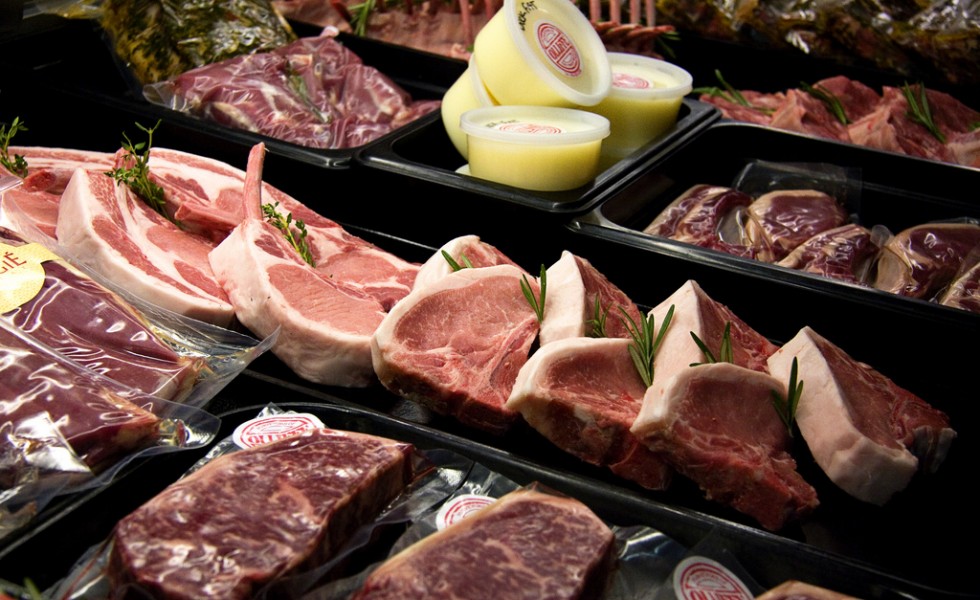Bigger Means Bitter, Not Better
Posted on August 13, 2021

In a sweeping, 72-point executive order on competition, the Biden Administration announced it was taking dead aim at the heavily concentrated “multinational companies (that) increasingly dominate markets for crops, chemicals, seeds, and meat,” reported Bloomberg.
The competition order–that “reach(es) from the FDA to the Pentagon”–includes “directives… such as rules that would help chicken farmers and ranchers… win claims against poultry and meat packers, and (a) better-defined ‘Product of the USA’ label,” explained Bloomberg.
While farmers and ranchers have waited decades to hear those words, the July 9 edict is the easy part. The really “heavy lift” is making the words a reality, relates Diana Moss, president of the American Antitrust Institute, a Washington, D.C.-based non-profit that promotes competition.
For example, she explains in a telephone interview, “Technically it’s possible to break up the meatpacker cartel,” one of the order’s biggest targets, “through antitrust prosecution.” And, in fact, the Administration is trying to do just that in several “cases against Big Tech right now.”
However, since “the packer cartel is in the middle of the food supply chain”–it buys livestock and poultry from farmers and ranchers to process and sell to the public–any disruption like, say, an antitrust action, could have severe consequences on the nation’s food supply and distribution.
A better approach, Moss suggests, is through more coordinated public policy actions. First, yes, aggressive antitrust action in the courts. Second, tougher “regulatory oversight from the U.S. Department of Agriculture” (USDA), and third, “legislative help to level the playing field” like “reforming the Packers and Stockyards Act.”
And, she adds, everyone should be aware “that the bigger the problem, the bigger the fix”: Farmers, ranchers, their farm groups, Congress, the Department of Justice, and USDA need to go big on all three fronts if challenged on any one of them.
Some pros already are. A mid-July podcast hosted by Moss featured two, Patrick Robinette who owns Micro Summit Processors in Micro, NC, and Mike Callicrate, a rancher and owner of Ranch Foods Direct of St. Francis, KS. Both have had long, painful dealings with meatpackers.
“When I started feeding cattle in 1978,” Callicrate relates, “I had 20 nearby packers… and 65 to 70 percent of the consumer dollar came back to the cattle producer. Early last summer”–after decades of meatpacker consolidation–“that fell to 27 percent.” That collapse means a “massive extraction of wealth from the farmer and rancher.”
It also had a huge impact on the local and regional economies. As four packers came to dominate the national meat scene, “We saw our regional food system simply disappear because almost all of our local business was gone.”
Robinette, 1,500 miles away in North Carolina, agrees; today’s heavily concentrated, deeply integrated food system “has no pathways… to accommodate small producers.”
And transnational meatpackers aren’t the only problem; an evermore monolithic USDA is a growing headache, also.
“Often USDA is confrontational,” says Robinette who deals with federal meat inspectors daily. “They’d be happier if they could turn us into the next Tyson” because they can deal with big; it’s what they are trained to do. Small, however, confounds them.
That’s especially true when it comes to country of origin labeling, or COOL, say the local producers. Hard as it is to believe, USDA still opposes COOL because, as Secretary of Agriculture Tom Vilsack claims, labeling U.S. meat violates several free trade agreements.
That stance, however, gives multinational packers license to source meat from dozens of nations, have it stamped “USDA Inspected,” and sell it to an unknowing American public as U.S.-grown meat while deeply undermining American ranchers and farmers like Callicrate and Robinette.
Vilsack is now talking about a label that reads “Product of the USA,” but Callicrate and Robinette are leery of Big Meat’s lobbying muscle.
Which goes back to Moss’s integrated public policy approach to make the Biden initiative bite: The courts, the regulators, Congress, and the farm and ranching public all have to do their share of lifting if there’s any chance for all to be lifted.
© 2021 ag comm
Share This